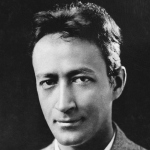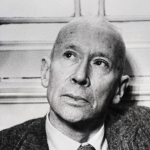Oh! had I now an overcoat,
For I am nearly freezing;
My head and lungs are stopped with cold,
And often I am sneezing.
And, too, while passing through the street,
Where merchants all are greeting,
They say, young man this is the coat
That you should wear to meeting.
Then, looking down upon my feet,
For there my boots are bursting,
With upturned heels and grinning toes,
With tacks which long were rusting.
Ah! how they view my doeskin pants
With long and crooked stitches,
They say, young man would you not like
To have some other breeches?
My head is also hatless too,
The wind is swiftly blowing,
They say, young man will you not freeze?
See ye not how it’s snowing?
And now they take me by the hand,
And lead me toward the store,
And some are pulling down the coats
Before I reach the door.
So walk I in, their goods to price,
To quench a thirst that’s burning,
And freely would I buy a coat,
But nothing I am earning.
They say to me, I should have known,
When I was roaming through the park,
With birds around me humming.
Their logic’s true, I must confess,
And all they say is pleasant;
But did I know that I would have
No overcoat at present?
To satisfy these craving Jews,
To buy I am not able,
For it is more than I can do
To meet my wants at table.
Therefore my skin will toughly grow,
Will grant to me this favor,
That I may learn to stand as much
As little Jack, the sailor.
And if I live till winter’s passed,
Though nature’s harps unstringing,
I then will fly to yon woodland
To hear the oak trees singing.
Then I will not on hero’s fame,
Ride swiftly on to victory,
Although my saddle may be made
Of cotton sacks or hickory.
But if I die, farewell to all,
Oh! who will tell the story,
That I have lived a noble life.
And now gone home to glory?
Yes, who will chant a song of praise
For me—who will be weeping—
When I have yielded to the grave,
And ’mid the dead am sleeping?
But some will ask, “how did he die?
It was without my knowing;
Was it because he caught a cold,
Last year when it was snowing?”
The answer now comes hurling back,
In words I cannot utter,
It was not by a cold alone,
But partly bread and butter.


















Comment form: